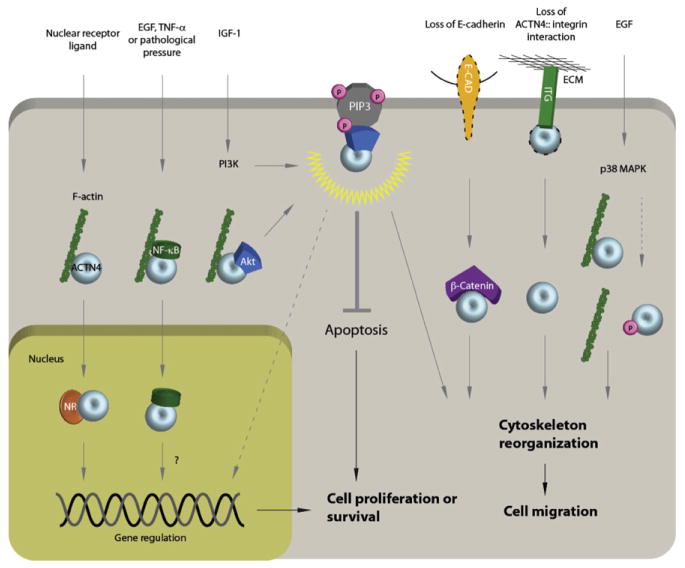Figure 13.2.
A summary of key ACTN4-associated oncogenic pathways. In the nucleus, ACTN4 functions as a transcriptional coactivator to potentiate expression of nuclear receptor target genes, some of which promote cancer cell proliferation and survival. ACTN4 also interacts with NF-κB and chromatin remodeling factors, but the functional significance of these associations is currently not clear. In the cytosol, activated PI3K induces an association between ACTN4, Akt, and PIP3. Once anchored to PIP3, Akt is activated, thereby inhibiting apoptosis and promoting cell proliferation and migration. As a cytoskeletal protein, the interactions of ACTN4 and its cytoskeletal binding partners are subject to regulation by several signals. For example, loss of E-cadherin in colorectal cancer results in an increase in an ACTN4:β-catenin interaction which subsequently facilitates cytoskeletal reorganization and cancer cell migration. Similarly, disruption of the ACTN4:integrin or ACTN4:F-actin interactions results in acceleration of cytoskeletal reorganization and subsequent increases in cell migration.

